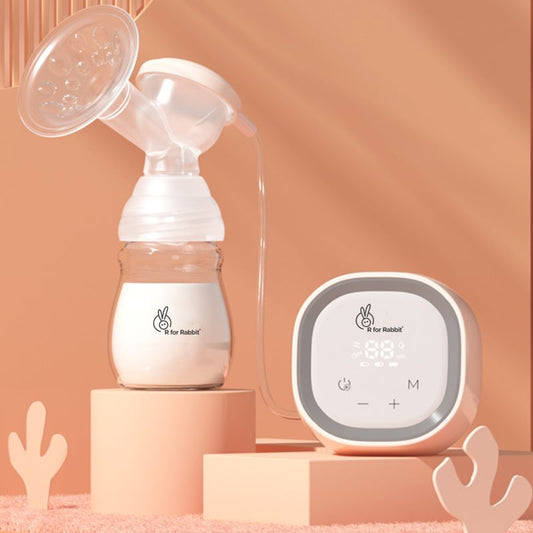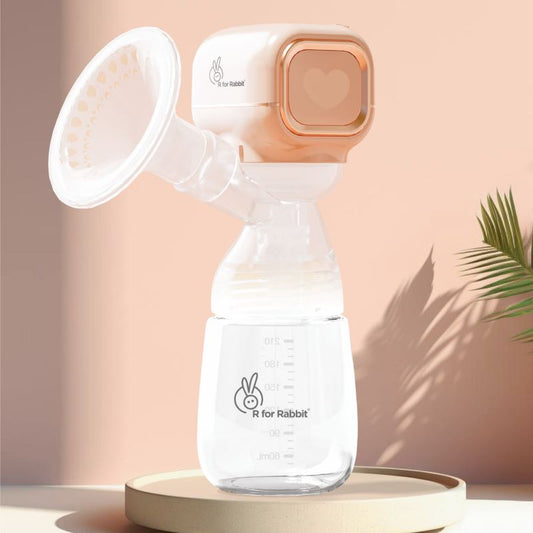Breastfeeding Tips: Foods to avoid during Breastfeeding Period

Sushmita Mallick | Nutrition Expert

Breastfeeding is an essential aspect of child-rearing that every mommy is concerned about since there are so many things involved in this process apart from the sleepless nights to feed the little one several times. However, the benefits of breastfeeding are so unique, both for the child and mother, that those frequent feeding sessions do not matter.
So, if you have taken up this challenge and want to feed breast milk on a child’s demand, there are a few crucial things that you need to be aware of.
Experts state that a mother’s diet is vital during breastfeeding since the food you consume will directly impact the milk supply and quality, which will definitely show in your child’s development and feeding routine.
Several recommended food items boost milk supply and ensure that the child gets complete nutrition in the initial days, as breast milk is the only source of nutrients for an infant.
However, today, we will not discuss the preferred foods; instead, we would like to highlight the foods to avoid during breastfeeding in India so that mommies with limited knowledge of food options and diets can clearly understand.
Indian Diet Comprises of a Wide Diversity of Foods
The Indian diet contains a variety of foods since cooking techniques and choice of ingredients vary from one region to another, which is why many new mommies tend to be unaware of foods to avoid during breastfeeding as they have been consuming the items since childhood and have not faced any issues.
But the truth is that your body changes tremendously during pregnancy, and if you are breastfeeding, some foods may not be suitable for your little one. Therefore, having in-depth knowledge of what to eat and when to eat is critical to a hassle-free feeding experience.
8 Indian Foods and Drinks to Avoid While Breastfeeding
Do not be amazed to find some of the most common ingredients or recipes in the avoid list, and ensure that you incorporate good eating habits and eat clean during the first few months as your child is dependent on you.
Healthcare professionals suggest that young mommies take extra care of their diets and routines since happy mothers raise healthy children. If you take mental stress or do not take good care of your physical well-being, it will hamper your health and will also affect milk production and quality.
So, let us begin and explore the top 8 Indian foods and beverages that are a complete no for breastfeeding mommies.
1. Beverages comprising caffeine and alcohol
Alcohol and caffeine consumption can have unfavorable effects on your munchkin since both quenchers get into your bloodstream and are quickly passed on to your child via breast milk. Babies are susceptible in the initial few months after birth as their immune system and body organs have not matured fully.
Therefore, there may be issues like sleeping troubles, fussiness, and irritation if you ingest both drinks. Consequently, we suggest young mommies dodge consuming beverages with high caffeine and alcohol.
However, limit the portion size if you cannot eliminate these drinks. If you desire, drink one or a maximum of two regular cups of beverages daily so your kiddo stays safe and healthy.
2. Certain Fish and Seafood
If you love fish and seafood, you need to be choosy since many commonly consumed fish species have high mercury levels, which has a harmful effect on infants. Fishes and sea animals absorb mercury in methyl-mercury as they feed on food, which tends to bind with proteins in the tissue.
Therefore, mercury is not eliminated even when you clean and cook the food, meaning you consume mercury-containing seafood, which will be passed on to the child.
Undoubtedly, suppose you consume a suitable variety of fish. In that case, you get omega-3, protein, minerals, and more, but if you include ones with high levels of mercury, your child will be exposed to it, and as per experts, it may affect the child’s nervous system and brain development.
So, do not take any risks and make your choices right. So, which fish are safe to eat during breastfeeding? Here are the options:
- Safe seafood for feeding mums: Cod, Herring, Pollock, Catfish, Salmon, Tilapia, Lobster, Crab, Tuna, and Shrimp.
- You must skip the following fish: marlin, tilefish, and king Merkel. Swordfish and Orange Roughy.
3. Spicy and Gas-Inducing Foods
When you plan your diet during breastfeeding, strike out gas-inducing foods since these would not only affect your digestive system but also affect your infant, and you may end up being irritated and crying out of stomach ache. We know you would never want such a situation.
Also, avoid spicy food that you used to have previously. Keeping the recipes plain for some time is recommended by adding nourishing ingredients so that the little one gets all the essential nutrients for growth and development in this phase.
4. Allergenic Foods
Health experts and nutritionists state that some foods fall in the allergenic category, the most common of which are eggs, dairy, and nuts. Very few mothers are aware of the fact that these foods that you consume almost every day can cause allergies in your baby, like skin issues, digestion problems, and more.
Also, if anyone in your family has been allergic to these food items, you should try avoiding or at least limiting the intake.
5. Cabbage and Certain Veggies
Cabbage is an excellent veggie for a regular diet, but if you are breastfeeding, it is one of the top Indian foods to avoid during breastfeeding since it induces too much gas in both the mum and the infant. Apart from cabbage, veggies like garlic, broccoli, spinach, cauliflower, and radish are also believed to be culprits for causing gas problems.
However, if you still like to consume these veggies, ensure that you eat them during the day rather than at night so the meals get digested. The best method is to restrain the portion intake to minimise the effects and not trouble your child after feeding.
Also Read: How To Increase Breast Milk Naturally at Home?
6. Medications and Unprescribed Herbal Supplements
After childbirth, breastfeeding mums need to take supplements like calcium and iron to satisfy the nutrient deficit. But, if you take medications or herbal supplements without consulting an expert, stop right away since these may do more harm than good to you and the little one. Most commercially marketed health supplements are ideal for regular usage.
Still, they may not be appropriate for breastfeeding moms as the ingredients may be passed on to the infant via breast milk, aggravating reactions. Comprehend that your baby’s body is still evolving and adapting to the environment; introducing foreign elements can cause severe damage. So, before making such choices, consult your doctor and get advice on the medication.
7. Food Additives and Synthetic Sweeteners
A homemade meal with simple, easy-to-digest ingredients and minimal spices is the most suitable diet for a breastfeeding mother. Consuming packed foods with additives or artificial sweeteners is an absolute no since such foods can cause high levels of sugars and chemicals in your bloodstream, which are then passed on to the baby via milk.
So, avoid packaged foods like biscuits, chips, frozen meals, sugary drinks, etc. Also, try bypassing or limiting the intake of fast foods since fried and high-fat food isn’t good for both of you.
Also Read: Why Breastfeeding Is Important For Your Newborn?
8. Dairy and Soy Products
Dairy products are challenging to digest; hence, consuming high amounts of products from this category will directly affect breast milk composition. You may prefer such foods because these are believed to be a protein-rich source.
But, considering its effect on the infant, it is better to stay away and choose alternative protein sources that would enrich the breast milk composition without any digestion challenges.
If you are planning to switch to dairy substitutes like soy products, we would like to highlight that even soy dairy items aren’t safe for breastfeeding children since there are chances of allergies, digestion issues, and colic in the long run.

Key Takeaways
In this blog, we have highlighted what foods to avoid during breastfeeding, so if you are a new mommy, remember these items when planning your diet schedule. After all, you aim to render the best health and well-being to the tiny angel, and giving up your favorite foods for some time is not a big deal for that lovely smiling face.
If you need aid in selecting the best breastfeeding essentials, scan the R for Rabbit website for a range of top-notch products at incredible prices. If you are facing any lactation or breastfeeding issues, seek specialist advice straightaway since the healthcare expert is the best person to give dietary guidance based on your routine and lifestyle.







